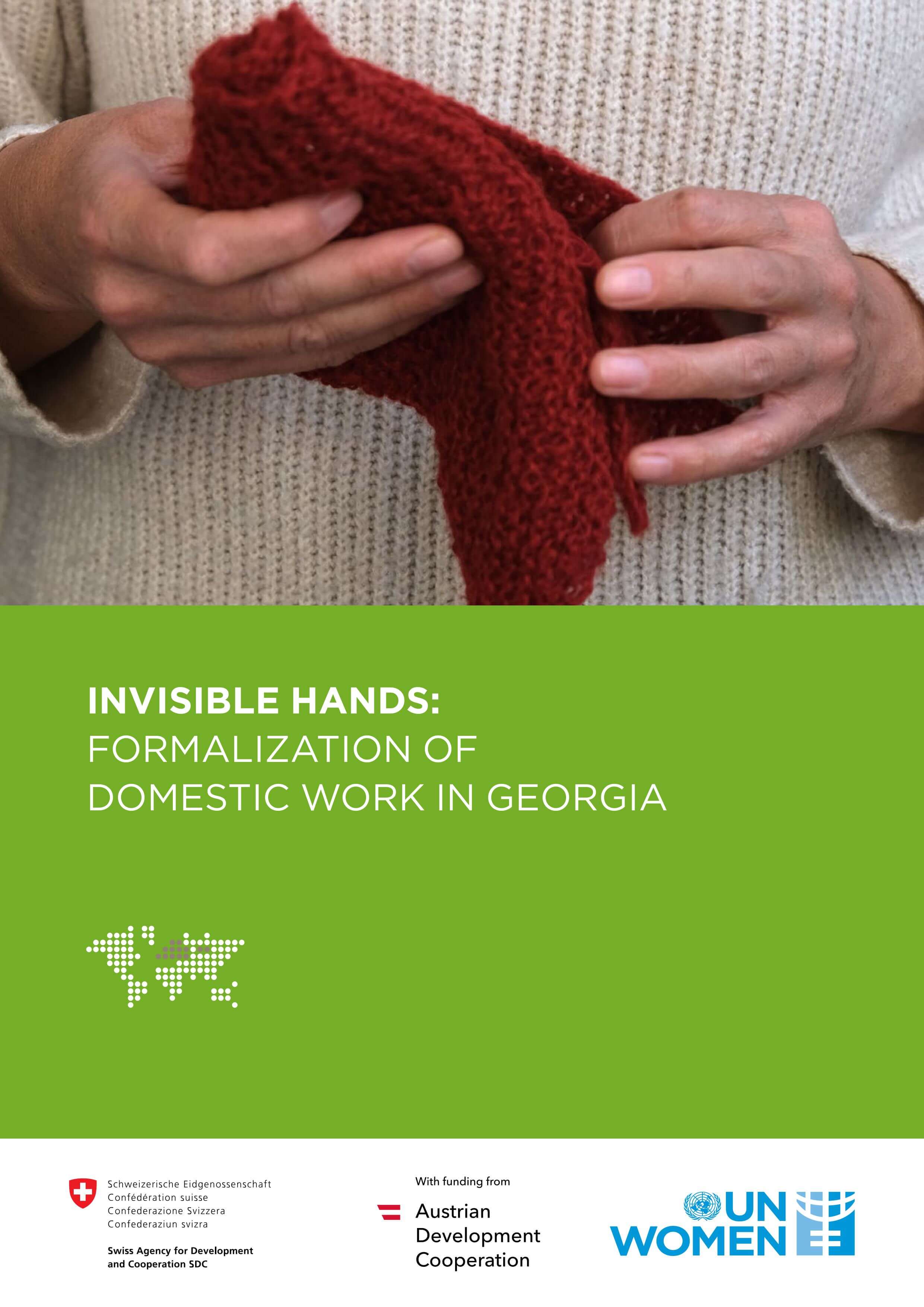
Invisible Hands: Formalization of Domestic Work in Georgia

Domestic work is often characterized as informal and invisible employment, placing workers in a vulnerable position, according to the International Labour Organization (ILO). The labor and social security laws do not recognize or protect the work activities of those employed in the informal sector. Georgia has not yet ratified Convention No. 189, adopted by the ILO in 2011. Local labour legislation does not recognize domestic work; and until now, the courts have never discussed whether domestic work is a labour relation as defined by the Labour Code of Georgia. Consequently, domestic workers in Georgia do not enjoy the basic labor rights and benefits provided by the Labor Code. In Georgia, the majority of domestic workers (99 percent) are women.
The Progressive Forum of Georgia and Nannies and Domestic Workers Association, in collaboration with UN Women, have developed a policy document that examines the rights and working conditions of domestic workers in Georgia. The document analyzes approaches from various countries regarding the recognition of domestic work as an employment relationship, the extension of labor and social security rights to domestic workers, and the implementation of fiscal measures to promote formalization of domestic work. The policy document aims to offer state institutions and stakeholders a vision for the formalization of domestic work in Georgia.
The policy document was developed in the scope of the project “Women’s Economic Empowerment in the South Caucasus” (WEESC), funded by the Swiss Agency for Development and Cooperation (SDC) and the Austrian Development Agency (ADA).